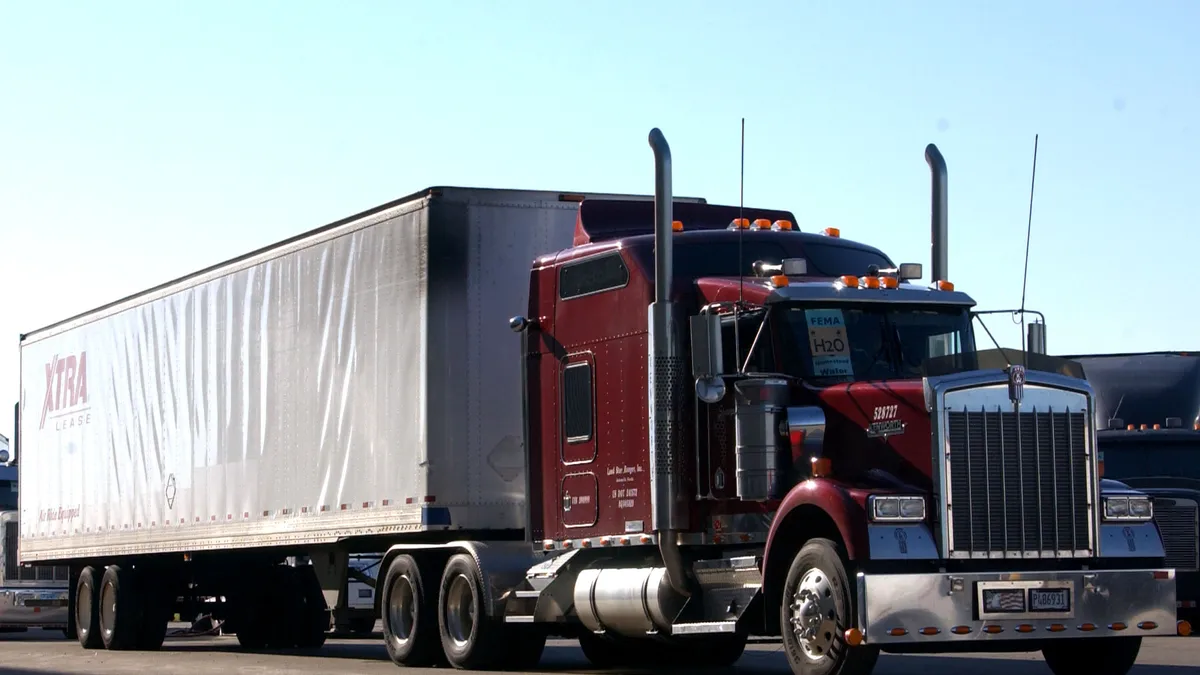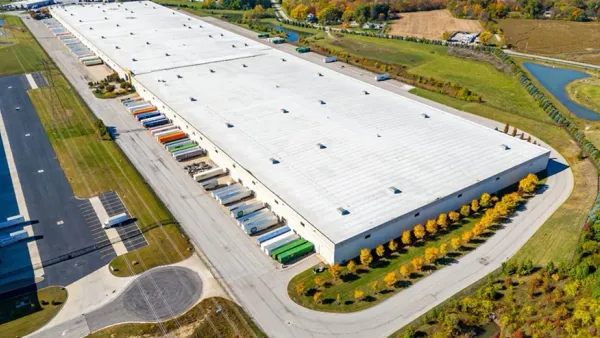Dive Brief:
- This holiday weekend, organized cargo thieves will be on the lookout for unattended shipments, SensiGuard reported Tuesday. Memorial Day weekend has previously seen a 50% theft rate increase.
- In the past two years, 26 Memorial Day weekend thefts were reported, with stolen merchandise valued at nearly $5 million. In 2015 over the holiday weekend, a full truckload of perfume worth $2.5 million was taken.
- Active tracking of shipments, updated security protocols and advance confirmation of receiver hours with scheduled delivery times are recommended preventative measures.
Dive Insight:
There are two types of cargo theft: straight theft, which includes pilferage; and strategic theft, which involves tricking drivers with false identities or double brokerage, Scott Cornell, transportation lead and crime and theft specialist at Travelers Insurance told Supply Chain Dive.
Holiday weekends are notably risky for cargo thefts, but supply chain managers cannot keep their guard down regardless of the industry. It's not just high-value targets that are being stolen nowadays, according to Cornell. In advance of the recession, the most popular items to steal and resell were electronics; however, once the recession hit, food and beverages took precedence.
"If you think about it, it's perfect," Cornell said. "If someone steals a load of televisions, I can search for those televisions by serial numbers for a long, long time. But with food and beverages, the items literally disappear."
So what can a logistics manager do to prevent theft?
In addition to implementing traceability technology to constantly track cargo, and the recommendations by SensiGuard, "everyone involved with cargo has to understand what's involved in preventing theft," Cornell advised. "Theft prevention is best applied in a layered approach involving education, awareness and process."
"It's important to remember that these are people who understand the transport industry, and in many cases, have a CDL of their own," he added. "They understand industry technology, and they'll even resort to identity theft by claiming to be from the receiver to get their hands on the cargo."
As a result, drivers should be particularly careful to secure their loads, even if running into a gas station for a cup of coffee, and park only in well-lit, secure locations. "Thieves often lie in wait, watching warehouses and distribution centers, then follow any departing trucks," he said. "If a driver stops too soon, the thief is going to try to steal the truck and/or the the trailer ... That's why we tell drivers to be gassed up in advance, and have their coffee ready when they leave."
Not that thieves aren't mobile. "These guys work in organized groups," Cornell said. "If we see a rash of thefts in Tennessee, chances are the thieves are from Florida or Illinois. We see a lot of the same individuals involved all over the country."
Beyond drivers, state law enforcement and insurance investigators play a large role in "making life difficult" for the thieves. While punishment for cargo theft was previously considered lenient due to low or nonexistent rates of violence against drivers, Cornell said states have become far more strict in recent years.













